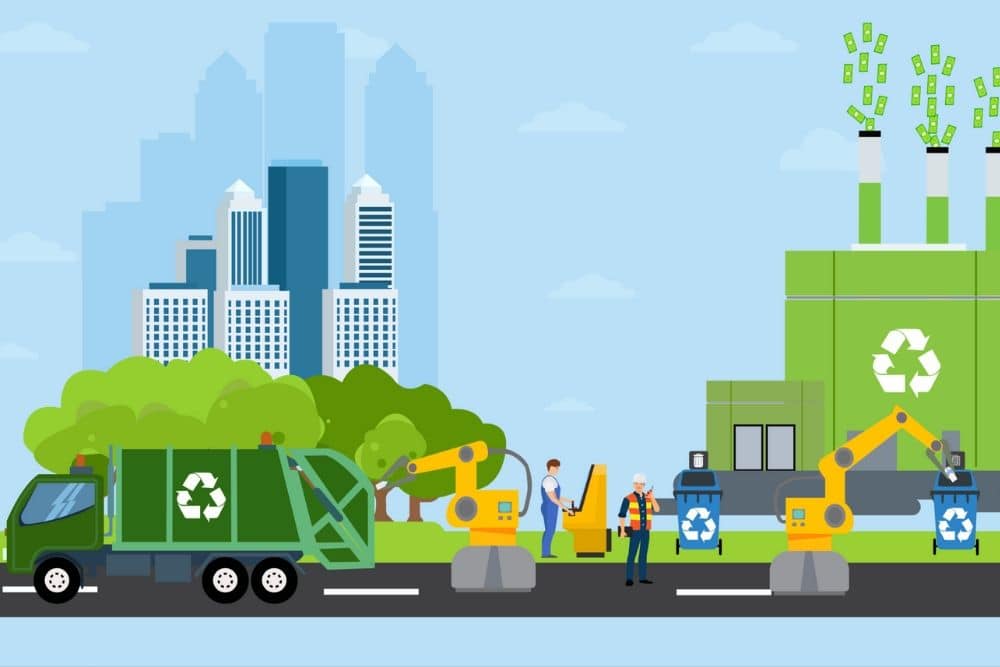Big data, or the field of collecting and analysing enormous amounts of information, is vital for today’s education, government, banking, healthcare, and retail since the dawn of the information age. Now, it’s making its debut into the rubbish and waste disposal industries.
Furthermore, integrating big data into the entire rubbish removal process allows for easier recycling and waste management. Besides, it evolved many industrial and scientific communities that helped us better understand our changing world and find ways to combat climate change.
Big Data, Companies, and Waste Management
With the help of big data, rubbish removal companies, and the recycling industry can establish optimised collection routes by analysing historical waste collection data. This also reduces their carbon footprints by reducing emissions from trucks following a shorter and faster route.
However, a massive stream of information can take time to process. But through the use of the methodical four Vs of big data, you can collect and evaluate large amounts of information systematically.
The Four Vs of Big Data
Many industries, including waste disposal, specify big data into four correlating attributes ‒ volume, velocity, variety, and veracity. Each of these is significant to one another to make sense of the complex information collected by industries.
Volume
The main property that defines a “big” data is its sheer volume. Companies collect real and raw data from a lot of reliable sources ‒ and the more remarkable data you collect, the more insight you can derive for better waste management decisions.
Velocity
The frequency of incoming raw data is called velocity. Generally, the faster you collect and process information, the quicker you can create relevant and timely reports.
Variety
Variety of data increases as big data can have broad demographics and a diverse audience. However, the more varied your data is, the more you’ll learn about your respondents and their behaviour towards waste production and disposal.
Veracity
This refers to the reliability and trustworthiness of the collected data. Also, data must be consolidated, consistent, clean, and current to make relevant waste management decisions and evaluate the effects of best recycling practices.
Big Data, AI, and the IoT
Rubbish and waste disposal industries take big data into action by integrating it into the internet of things (IoT). One way they can make recycling much more efficient is with a recycling robot.
A recycling robot identifies patterns, textures, and even brands or logos by using massive data as a reference. As a result, it can determine and sort heaps of solid waste swiftly and efficiently ‒ think about 60 crates of recyclables a minute!
Moreover, the IoT and its automation capabilities allow rubbish removal companies to play more significant roles in waste management and removal. They can now dispose of biohazardous and toxic waste without exposing their staff on severe health risks.
Aside from using big data to power the IoT, experts also train artificial intelligence or AI using big data to provide information. Hence, governments and rubbish removalists can use tailor-fit dashboards and graphs to intimately understand waste streams and design better resource removal and recovery programs.
Ultimately, the waste disposal industry can integrate big data and mobile devices into an application for everyone to catch up with the latest conditions of waste streams and resources. This way, people will know their role in the play and contribute to balancing the needs of the environment.
Conclusion
One of the biggest and crucial contributions of big data and the tech industry is their impact on rubbish and waste disposal industries. With the role of big data as a resource for automation and essential metrics, we can better track our progress and make sure every decision is a step to the right path.
The rubbish and waste disposal industries have a lot to look forward to in the coming years. Consequently, Paul’s Rubbish Removal is playing an active role in it.
We have been serving the entire City of Sydney for over ten years, and our team have developed a time-tested process that achieved significant results for all sorts of rubbish removal.
Call Paul’s Rubbish Removal in Sydney on 0407 125 125 for a reliable and budget-friendly rubbish removal service.







